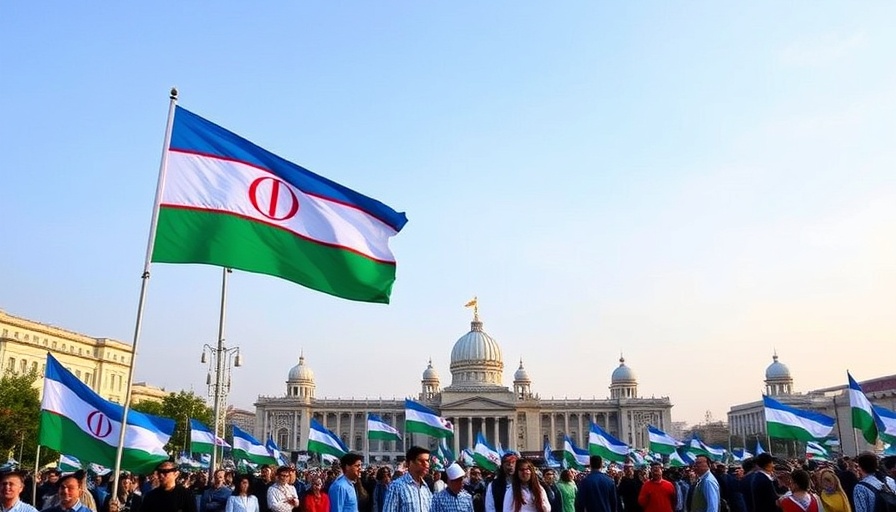
Celebrating Uzbekistan's Path to Sovereignty: A Historical Overview
Uzbekistan Independence Day, annually commemorated on September 1, marks a monumental chapter in the nation's history. Achieving independence in 1991, Uzbekistan transitioned from Soviet rule to self-governance, asserting its identity on the world stage. This day embodies the aspirations and endurance of the Uzbek people, who fought for the right to determine their own destiny.
The Significance of Independence
For many Uzbeks, Independence Day is more than a national holiday; it symbolizes the triumph over colonialism and the reclamation of a rich cultural heritage. Celebrations often include grand parades, cultural festivities, and public gatherings that emphasize national pride. Historical perspectives reveal that the struggle for independence wasn't just a political movement but a cultural renaissance that revitalized traditional arts and crafts, language, and national identity. These factors resonate profoundly today, offering a legacy of resilience that reinforces national unity.
Where Uzbekistan Stands Today: Economic and Political Developments
Since gaining independence, Uzbekistan has experienced both challenges and triumphs. The nation has embraced market reforms, focusing on diversifying its economy, enhancing its manufacturing capabilities, and investing in renewable energies. These developments reflect an evolving economy in tune with global trends. However, challenges such as political reform, social justice, and national security continue to shape Uzbekistan's trajectory. As the nation strives to balance tradition with modernity, it seeks to carve out a distinct position in the international arena while nurturing relationships with key partners, including the United States.
Exploring Current Relations with the U.S.
The United States has shown consistent interest in fostering better ties with Uzbekistan, focusing on trade relations, educational exchanges, and tackling mutual challenges like counter-terrorism and climate change. Recent initiatives emphasize collaboration in economic development and regional stability, showcasing a commitment to reinforcing partnership that respects the sovereignty and cultural contexts of both nations.
Reflections on National Day Celebrations
Celebrations on Uzbekistan Independence Day transcend mere festivities; they are a profound expression of cultural pride. Families gather for meals, communities host artistic performances, and individuals participate in sports events — each activity reinforcing social bonds. The essence of this day resonates strongly within the younger generations, instilling a deep sense of national pride and responsibility to carry forth the aspirations of their forebears.
Looking Ahead: Future Prospects and Challenges
The future trajectory of Uzbekistan hinges on its ability to balance growth with social equity. With ongoing global issues, including climate change and international tensions, Uzbekistan finds itself at a critical juncture. As it navigates these complexities, the country’s commitment to sustainable development and regional cooperation will be instrumental in determining its place on the world stage.
Wrapping Up: What Independence Means Today
In conclusion, Uzbekistan Independence Day serves as a poignant reminder of resilience and pride for its citizens. By honoring their past while actively shaping their future, the people of Uzbekistan continue to inspire hope and commitment to their national values. As the world watches, Uzbekistan's continued journey of growth and self-determination remains a story worth celebrating. In understanding this journey, we not only appreciate Uzbekistan's rich heritage but also the universal quest for sovereignty and identity that resonates across nations.
As we reflect on this important day, let’s engage with Uzbekistan's ongoing developments and celebrate the strides it has made since its independence. Understanding the significance of national celebrations like Uzbekistan Independence Day can provide deep insights into the implications of the nation's journey — not just for its own people, but also in terms of global dynamics and political relations today.
 Add Element
Add Element  Add Row
Add Row 



Write A Comment